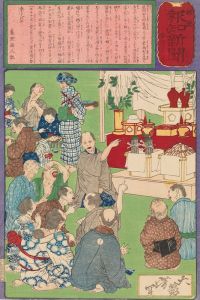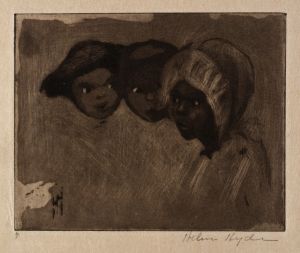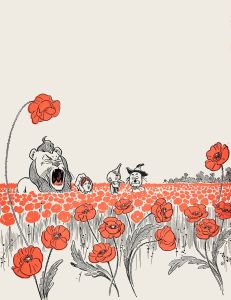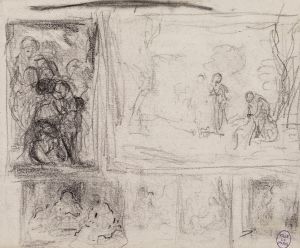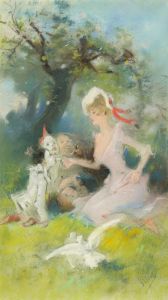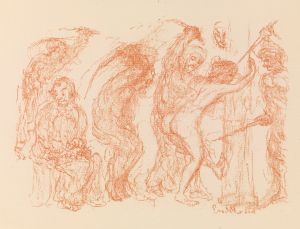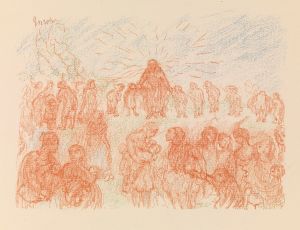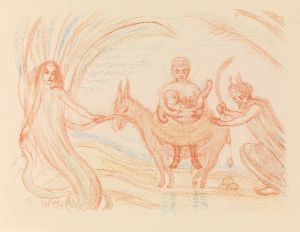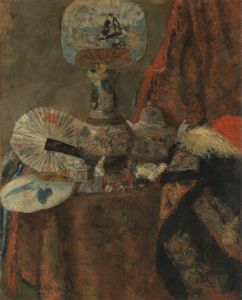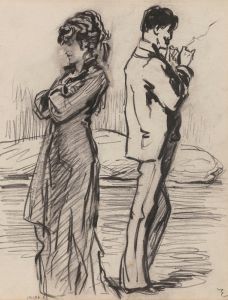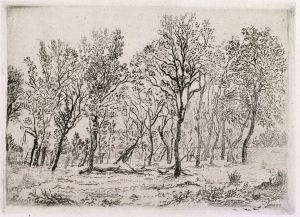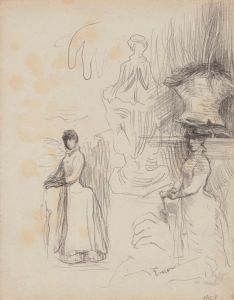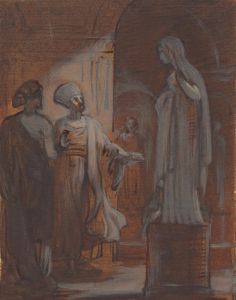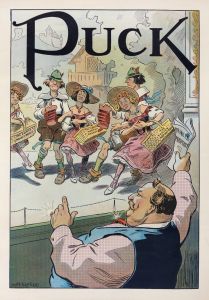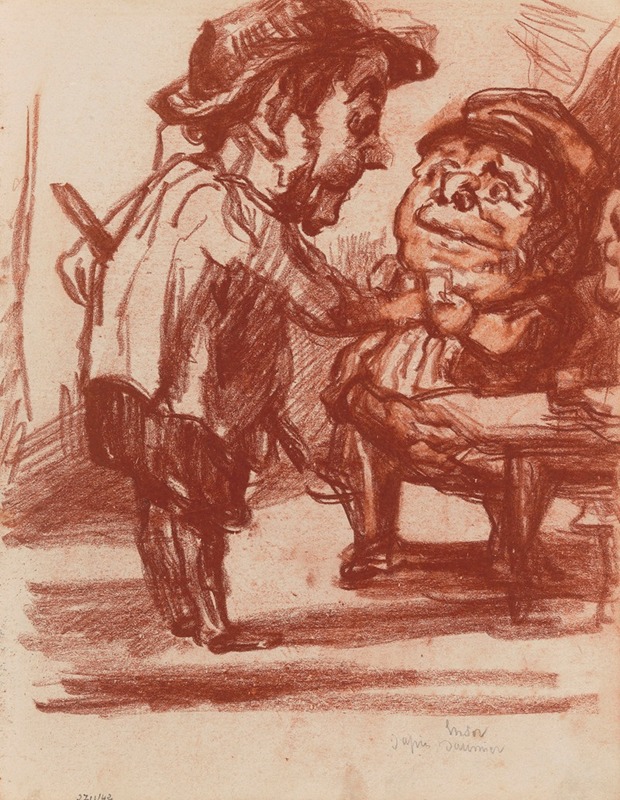
The Jolly Hunters
A hand-painted replica of James Ensor’s masterpiece The Jolly Hunters, meticulously crafted by professional artists to capture the true essence of the original. Each piece is created with museum-quality canvas and rare mineral pigments, carefully painted by experienced artists with delicate brushstrokes and rich, layered colors to perfectly recreate the texture of the original artwork. Unlike machine-printed reproductions, this hand-painted version brings the painting to life, infused with the artist’s emotions and skill in every stroke. Whether for personal collection or home decoration, it instantly elevates the artistic atmosphere of any space.
"The Jolly Hunters" is a painting created by Belgian artist James Ensor, a prominent figure in the Symbolist and Expressionist movements. Ensor, born in 1860 in Ostend, Belgium, is widely recognized for his innovative and often provocative works that explore themes of mortality, absurdity, and the grotesque. His art frequently incorporates masks, skeletons, and carnival imagery, reflecting his fascination with the macabre and the theatrical.
"The Jolly Hunters" was painted in 1891, during a period when Ensor was producing some of his most distinctive and imaginative works. The painting depicts a chaotic and surreal scene of hunters, animals, and fantastical figures, rendered in Ensor's characteristic style. The composition is marked by its vibrant colors, dynamic brushwork, and a sense of disorder that challenges traditional narrative structures. The figures in the painting are often distorted or exaggerated, a hallmark of Ensor's approach to critiquing societal norms and human folly.
This work exemplifies Ensor's ability to blend humor and horror, creating a visual language that is both unsettling and captivating. The hunters in the painting appear to be engaged in a frenzied pursuit, their expressions and movements exaggerated to the point of absurdity. Surrounding them are various animals and grotesque figures, contributing to the chaotic atmosphere. Ensor's use of masks and distorted faces in the painting reflects his interest in the duality of human nature and the performative aspects of society.
"The Jolly Hunters" is housed in the Royal Museum of Fine Arts in Antwerp, Belgium, which holds a significant collection of Ensor's works. The painting is considered an important example of Ensor's mature style, showcasing his ability to merge traditional techniques with avant-garde ideas. It also highlights his unique perspective on the human condition, blending satire, fantasy, and existential inquiry.
James Ensor's influence on modern art is widely acknowledged, with his work inspiring later movements such as Expressionism and Surrealism. "The Jolly Hunters" remains a testament to his innovative spirit and his ability to challenge artistic conventions while addressing universal themes.





